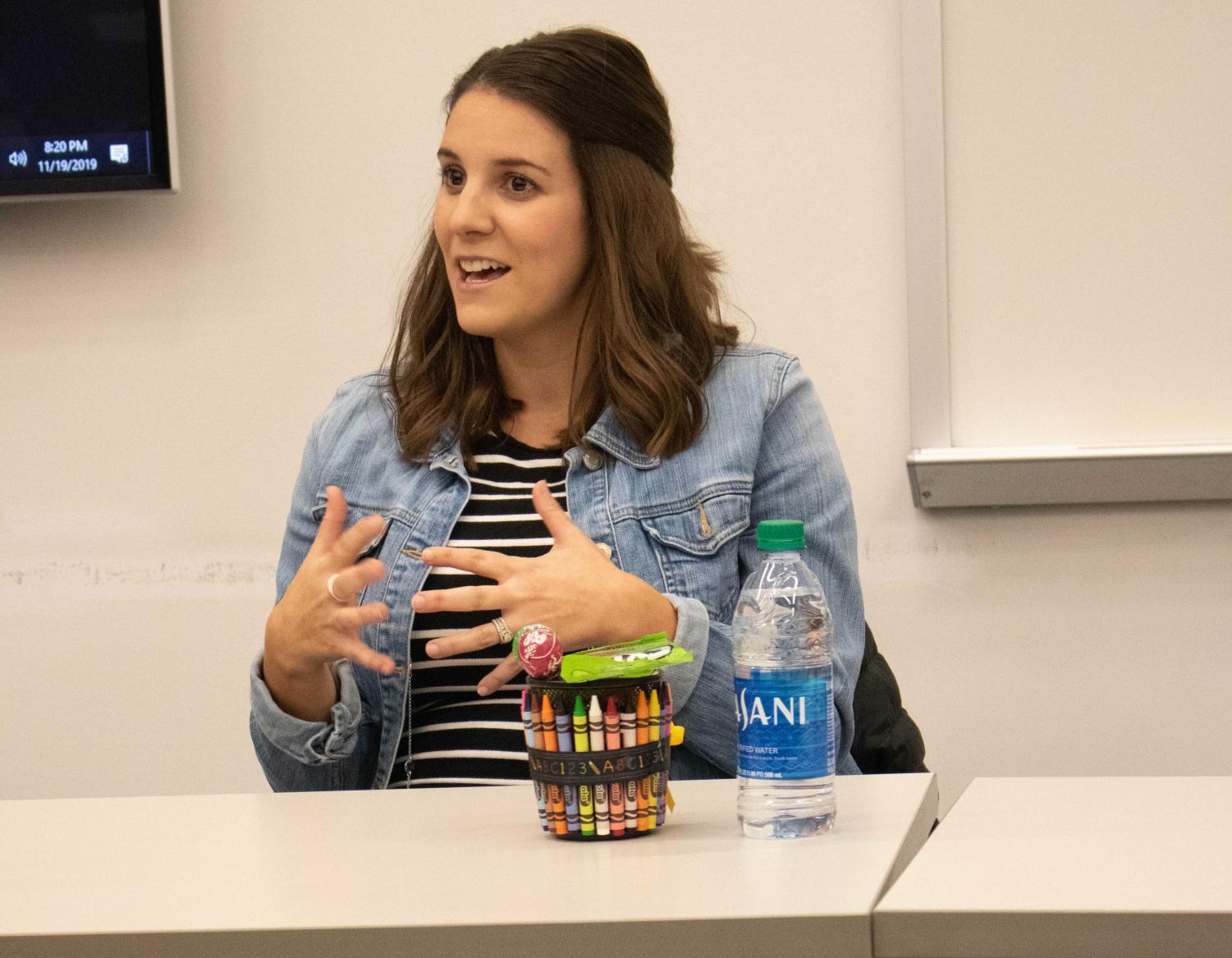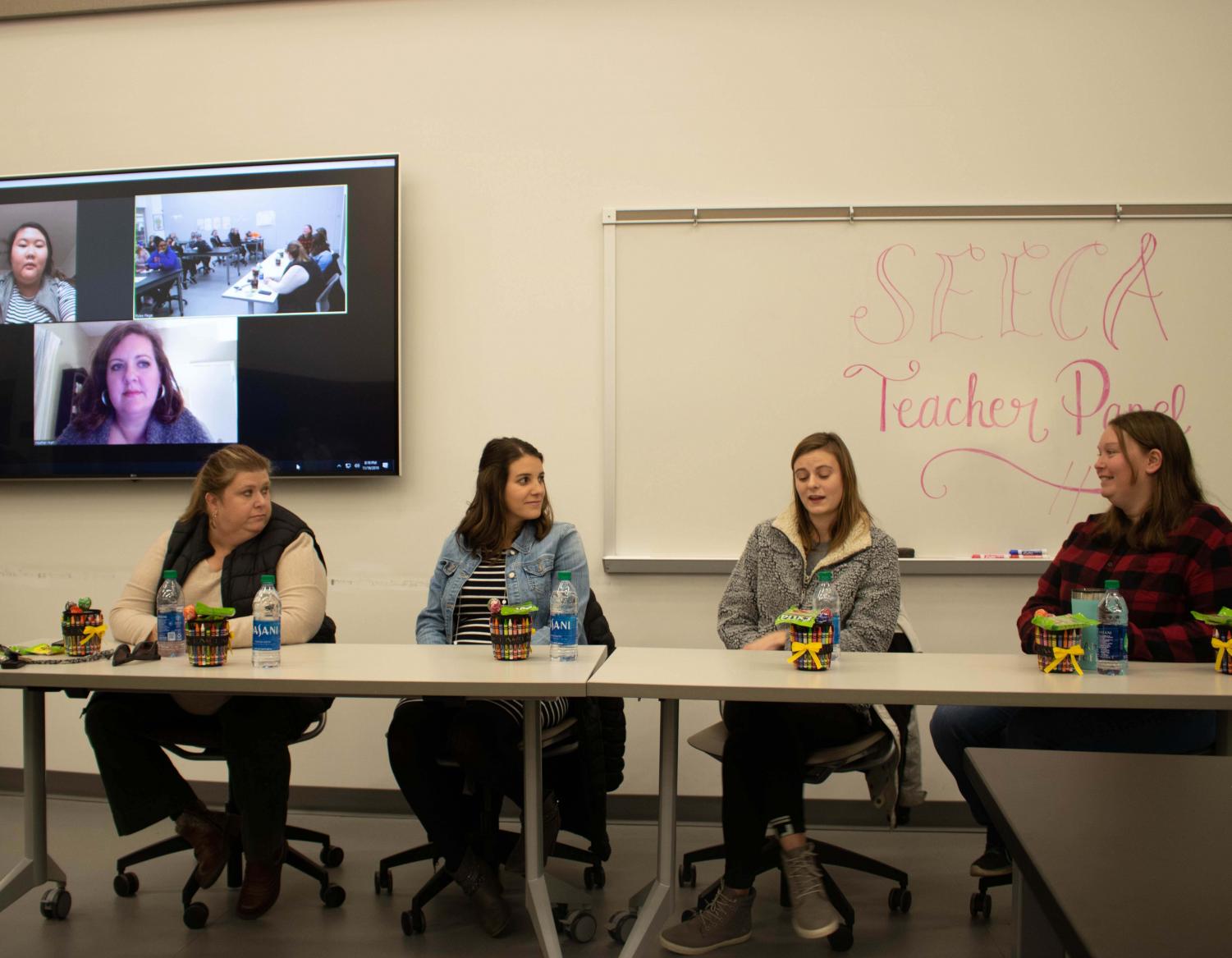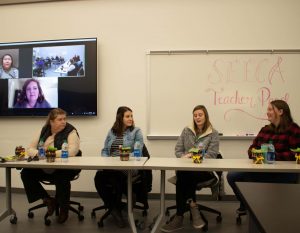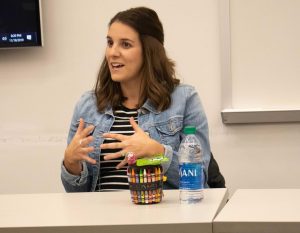Teachers offer advice at SEECA panel
Nov 21, 2019
During the Student Elementary and Early Childhood Association (SEECA) Classroom Teacher Panel on Nov. 19 in Schindler Education Center, six teachers shared their classroom experiences. The panel included several local teachers along with two teachers joining via a Zoom call from Texas and Alabama. By sharing their successes and failures, the panel hoped to prepare students for their future careers.
Kindergarten teacher Amanda Krambeer emphasized the importance of going with the flow while being a teacher.
“The hardest part is when you think you’ve got the whole entire class under control, there’s always that one guy,” said Krambeer. “You don’t know how to get to that one child, so you have to adapt and be flexible. You have to be okay with that. Make sure that you don’t let your own emotions play into it. That tends to be the big thing. When your emotions get up to here, the kid’s emotions are going to double that.”
Before going into education jobs, there are several things that the panelists wished they would have known. Music teacher Carol Edgar, who has taught a multitude of grades throughout her career, wished that she had received more training on interacting with parents. Third-grade teacher Katie Busch didn’t know what things she needed to collect data on and she gathered more than what was necessary.
“It’s okay to make mistakes and ask for help,” said preschool teacher Abi Nicholson. “I had never had that experience of a first-year teacher. Make sure to ask for help and get resources. Every year is something new. You don’t have to do it alone.”
Although teaching has its fair share of challenges, there are still many things that the panelists found rewarding about their jobs. Watching the kids grow and establishing relationships with them is a fulfilling process for seventh-grade teacher Heather Hurt. Busch enjoys seeing those “lightbulb moments” where students begin to understand a concept. In a similar vein, Edgar wants her students to grow in confidence during the teaching process.
To get to these rewarding aspects, future teachers will have to get hired first. The interview process can be difficult and the panelists offered some advice in this regard.
“Have a portfolio, and I don’t think a digital one’s the way to go,” said Hurt. “These people are busy; they want to see it in their hand. When you come for an interview, bring it so they can see it immediately. These are quick decisions that are being made; their life is busy. They just got off the bathroom floor restraining a fifth-grader, then jumped into an interview with you. Life is fast-paced; they don’t have time to go to a link on some website.”
Krambeer has found success in the interview process when she stays true to herself. By adding in her own characteristics and sharing personal examples of her accomplishments, she shows potential employers her genuine side.
In addition to this tip, Busch recommended asking questions about the job you’re applying for.
The students at the event thought that the teachers’ advice was helpful for their future goals.
“I thought it was a very insightful experience,” said sophomore elementary education major and special education/literacy minor Katelyn Pint. “I got to learn along with other pre-service teachers at UNI about the life of being a teacher.”











